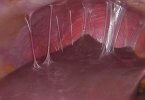What's in this article?
What is Acute diarrhea?
Acute diarrhea is one of the most commonly reported illnesses in the United States, second only to respiratory infections. Worldwide, it is a leading cause of mortality in children younger than four years old, especially in the developing world. Diarrhea that lasts less than 2 weeks is termed acute diarrhea. Persistent diarrhea lasts between 2 and 4 weeks. Chronic diarrhea lasts longer than 4 weeks.
Symptoms are associated with diarrhea
The symptoms that are associated with diarrhea depend on the cause and type of diarrhea.
- If there is a large secretory component to the diarrhea the bowel movements are frequent and watery. Pain is not common, and there are no signs of inflammation.
- Similarly, an osmotic diarrhea is watery, but its main characteristic is that once ingestion of food stops (which would include the offending dietary food or substance that is not digested or absorbed) the diarrhea stops.
- Motility related diarrhea is more likely to be associated with cramping abdominal pain.
- Inflammatory diarrhea often is associated with crampy abdominal pain as well as signs of inflammation, for example, fever and abdominal tenderness. It also may be associated with intestinal bleeding, either with visible blood in the stool or invisible blood that only is detected by testing the stool for blood.
- Although one might expect the diarrhea of collagenous colitis to be painless (since diarrhea is believed to be due to poor absorption of fluid and electrolytes), in fact, it is frequently associated with abdominal pain, suggesting that there is more to collagenous colitis than a failure to absorb fluid and electrolytes.
What causes acute diarrhoea?
- Infection of the gut is the common cause. This is of sudden onset and is called acute infectious diarrhoea. Many bacteria, viruses and other germs can cause diarrhoea. Sometimes the germs come from infected food (food poisoning). Infected water is a cause in some countries. Sometimes it is just “one of those germs going about”. Viruses are easily spread from one person to another by close contact, or when an infected person prepares food for others.
- Other causes are uncommon and include drinking lots of beer, side-effects from some medicines and anxiety.
- Gut disorders that cause persistent (chronic) diarrhoea may be mistaken for acute diarrhoea when they first begin – for example, diarrhoea caused by ulcerative colitis.
The rest of this leaflet deals only with infectious causes of acute diarrhoea. There are also other leaflets that give more details about some of the different germs (microbes) that cause infectious diarrhoea.
Other Medical Conditions
A number of noninfectious medical conditions may cause diarrhea. These include:
- Inability to digest certain foods, including lactose intolerance (difficulty digesting sugar found in dairy products); celiac disease (an immune reaction to consuming gluten, a protein found in wheat, barley, and rye); and pancreatic problems, such as those caused by cystic fibrosis, which interfere with production of important digestive substances.
- Surgery to remove part of your small intestine. A shortened small intestine may be unable to absorb all the substances you eat. This is referred to as short-bowel syndrome.
- Surgical removal of the gallbladder. An increase in bile in the colon may result in watery stools.
- Certain diseases of the endocrine (hormonal) system, including overactive thyroid disease, diabetes, adrenal disease, and Zollinger-Ellison syndrome
- Certain rare tumors (including carcinoid tumor and pheochromocytoma) that produce diarrhea-causing substances (hormones)
- Inflammation in the intestinal tract, which can result in chronic diarrhea. If you have inflammatory bowel disease (such as ulcerative colitis, Crohn’s disease, or microscopic colitis), you will have regular bouts of diarrhea during a flare-up of your disease.
- Irritable bowel syndrome, which may cause alternating bouts of diarrhea and constipation
- Ischemic bowel disease, which can be caused by blocked arteries. Symptoms might include abdominal pain with bloody diarrhea.
Treating Acute Diarrhea
It is important to take plenty of fluid with sugar and salt to avoid dehydration. Salt and sugar together in a beverage help your intestine absorb fluids. Milk and dairy products should be avoided for 24 to 48 hours as they can make diarrhea worse. Initial dietary choices when refeeding should begin with soups and broth.
Anti-diarrheal drug therapy can be helpful to control severe symptoms, and includes bismuth subsalicylate and antimotility agents such as loperamide. These, however, should be avoided in people with high fever or bloody diarrhea as they can worsen severe colon infections and in children because the use of anti-diarrheals can lead to complications of hemolytic uremic syndrome in cases of Shiga-toxin E. coli (E. coli 0157:H7).
Your doctor may prescribe antibiotics if you have high fever, dysentery, or moderate to severe traveler’s diarrhea. Some infections such as Shigella always require antibiotic therapy.
Treatment of chronic diarrhea depends on the etiology of the chronic diarrhea. Often, empiric treatment can be provided for symptomatic relief, when a specific diagnosis is not reached, or when a diagnosis that is not specifically treatable is reached.
Antimotility agents such as loperamide are the most effective agents for the treatment of chronic diarrhea. They reduce symptoms as well as stool weight. Attention should be paid to replacing any mineral and vitamin deficiencies, especially calcium, potassium, magnesium and zinc.





